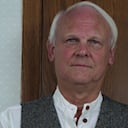Which play uses: “This above all,— to thine own self be true, And it must follow, as the night the day, Thou canst not then be false to any man.”?
In William Shakespeare's play, Hamlet: Act 1, Scene 3, lines 78-82, Polonius wisely said, “This above all,— to your own self be true, and it must follow, as the night the day, you cannot then be false to any man. When these words are used, they are seen by Shakespeare and his audience as pearls of wisdom on how a person could live a good and balanced life. This is token advice to Laertes (Polonius's son).
Also, those seeing this play were then well aware of the meaning that the words contained. Today, in a modern age unlike the Elizabethan era, the words like “self” and “true” often are used with several different meanings.
The first meaning is that someone can better judge himself if he has done what he should or could have. Second, the meaning is that one must be honest in his actions and relationships. Third, the meaning is that one must always do the right thing. Finally, with the character of Polonius in mind, many scholars are of the view that by using the word ‘true’ he meant beneficial. Therefore, his advice to his son meant that he must think of his own benefit first.
So, this quote is now often used in context of honesty and commitment. People use it when someone tries to cheat them. Bosses use it in their offices to lecture employees about good work habits, and parents use it to tell their kids to pick good friends. Service and production companies also use this phrase as a slogan, showing their commitment, dedication and adherence to quality standards.
More Info:
www.sparknotes.com







